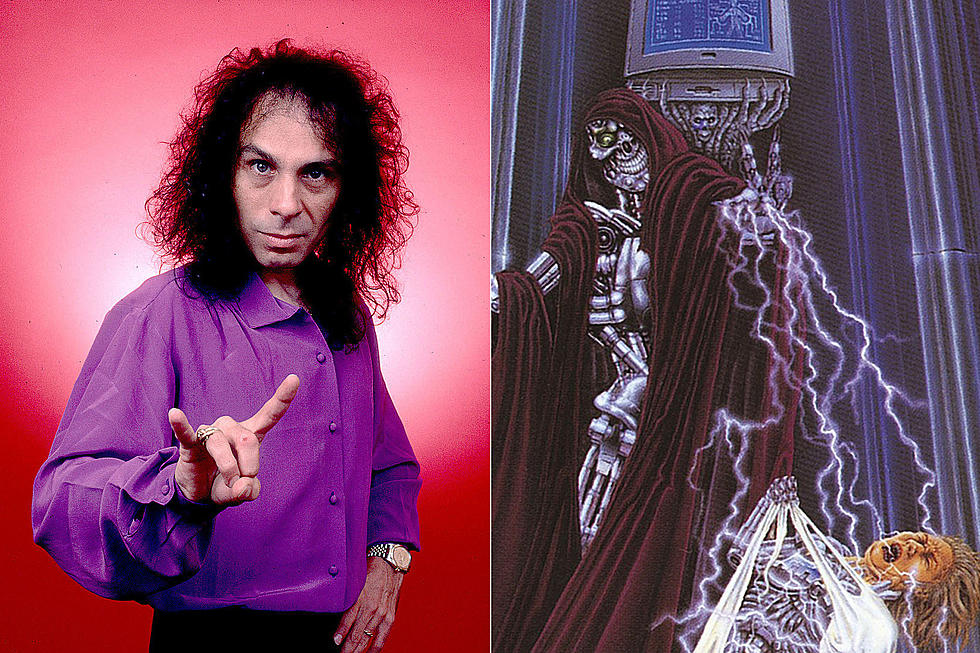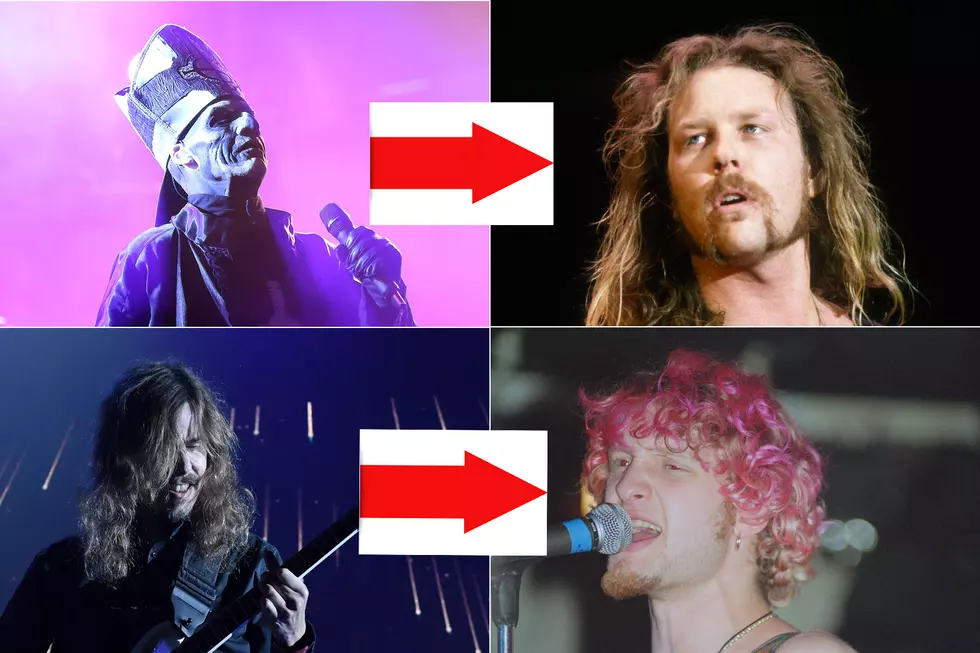
Tony Martin Says Black Sabbath Tried to Oust Ronnie James Dio During ‘Dehumanizer’ Sessions
In 1992, the Mob Rules era of Black Sabbath which notably featured singer Ronnie James Dio, the band reconvened and released the Dehumanizer album. The reunion was short-lived and Tony Martin, the Sabbath frontman on the flip sides of Dio's return, has now revealed that he was actually sought to replace Ronnie amid the recording sessions for the record.
Martin first joined Black Sabbath in 1987 when he was hired amid a tumultuous studio situation as the band worked on what would become The Eternal Idol, the group's 13th studio album. After singer Ray Gillen quit, Martin was brought in to finish up the record, and he remained with the band for an additional two full lengths — 1989's Headless Cross and 1990's Tyr — before being dismissed as Sabbath welcomed Dio, bassist Geezer Butler and drummer Vinny Appice back to the fold.
Recollecting this period, the 64-year-old Martin told Almost Human (video below) during a 75-minute chat (transcription via Blabbermouth), "They fired me [prior to the start of the 'Dehumanizer' sessions], which, by the way, was a complete surprise. I didn't see that coming at all. In fact, I was walking out of the door to go to rehearsals for the next album, and the phone rang just as I was leaving the door. And my manager [was on the other end of the line], and he said, 'You'd better sit down, kid.' I [said], 'Go on. What?' And he said, 'They don't want your services anymore.' [I said], 'What? You're kidding me.' I just didn't see that coming at all."
What transpired next was likely something Martin didn't see coming at all either — Sabbath leader Tony Iommi wanted him back.
The singer said that a handful of weeks later (he estimated a timeframe of four to six weeks), Iommi called him and said the reunion "isn't going very well [with] Dio."
"I said, 'Oh, really?' And he said, 'No. Can you come back?' And I said, 'No. I can't come back. I've already started doing my solo stuff and I've moved on.' [And he said], 'Okay. Okay.' So then a few months went by, and he called me again. And he said, 'Are you sure you can't come back? It's really not working.' So they invited me to go to the studio when they were recording the stuff, so I went down there," Martin added.
The band was short on time, which Martin noted was pretty typical, and that he "did try to get some melodies and stuff," but ultimately desired more time to bring his best.
He continued, "I said, 'Look, if I'm gonna do this, I need to rewrite this whole thing. I need to take it away and sit with it and work it out.' They said, 'We don't have the time for that.' [So I said], 'I'm gonna have to leave it with you. Probably the best thing to do is just continue with Dio, and then we'll talk afterwards.' So even through the Dio period, there was connections, and I was still talking to Tony."
Iommi even invited Martin to attend a show on the Dehumanizer tour, which apparently irked Dio.
Martin explained, "Dio comes offstage and I'm still backstage. He was not impressed with that at all. So there was a connection [between Black Sabbath and me] going through the Dehumanizer thing pretty much most of the way through — not in a constant way, but on and off."
Dio eventually quit Black Sabbath on the subsequent tour in support of Dehumanizer after he refused to accept Sabbath's opening slot for headliner Ozzy Osbourne at what were intended to be his final two shows to conclude a 1992 farewell tour. Judas Priest's Rob Halford was tabbed as the singer for those two gigs and Sabbath later brought Martin back for two more albums — 1994's Cross Purposes and 1995's Forbidden — before he exited again to allow Osbourne's return in 1997.
Since his last stint with Sabbath, Martin has recorded albums with The Cage, Empire, Giuntini Project and his third solo album, Thorns, is set for a Jan. 14 release.
Tony Martin Talks With 'Almost Human'
Top 90 Hard Rock + Metal Albums of the 1990s
More From KZCD-FM






